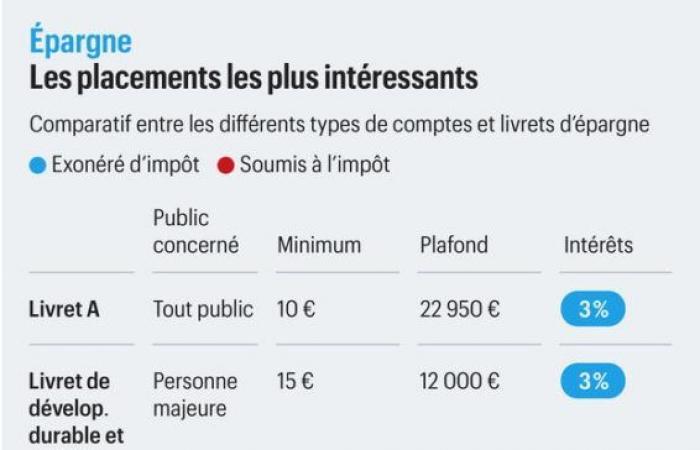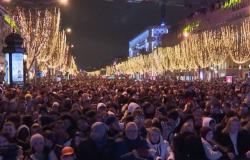Between Livret A, LDDS, LEP and PEL, more than 20 billion euros should be paid on January 1, 2025, according to data from the Caisse des Dépôts. An annual meeting eagerly awaited by savers.
When will the interest on your savings be paid?
Interest on regulated savings accounts (Livret A, LDDS, LEP) is calculated every 15 days, but payment is made once a year, on the night of December 31 to January 1. This credit is visible on the accounts from the first days of the following year, an operation closely scrutinized by savers.
What are the interest rates in 2024?
- Livret A and LDDS : With a rate of 3%, they bring in 212 euros for an average capital of 7,077 euros. For a maximum investment of 22,950 euros, the interest reaches 688.50 euros.
- LEP : Reserved for low-income households, this booklet displays a rate of 4%, or average interest of 263 euros.
- PEL et CEL : These products have rates fixed at opening. Since February 1, 2023, the CEL offers a gross rate of 2%, while PELs opened in 2024 benefit from a rate of 2.25%.
However, the CEL and PEL rates are subject to tax, unlike regulated booklets.
Records in 2024, but a decline in sight for 2025
Interest paid in 2024 marks a historic peak, but the trend could be reversed as early as 2025. With the slowdown in inflation, the Livret A and LDDS rate could be revised downwards, dropping to 2.5% from on February 1, 2025. The LEP should follow the same trajectory, with an expected rate of around 3%.
The new PELs will also be impacted: those opened from January 1, 2025 will offer a reduced rate of 1.75%, compared to 2.25% for plans subscribed in 2024.
A key meeting for the French
While the French closely monitor the income from their savings, these annual payments constitute a welcome breath of fresh air after the end-of-year holiday spending. If 2024 marks a record year, the forecasts for 2025 remind us that rates are closely linked to the economic situation.







